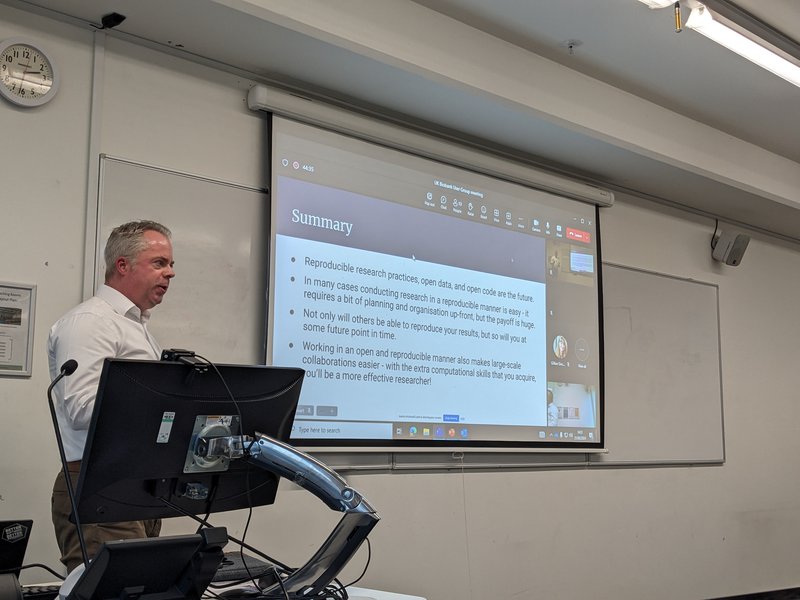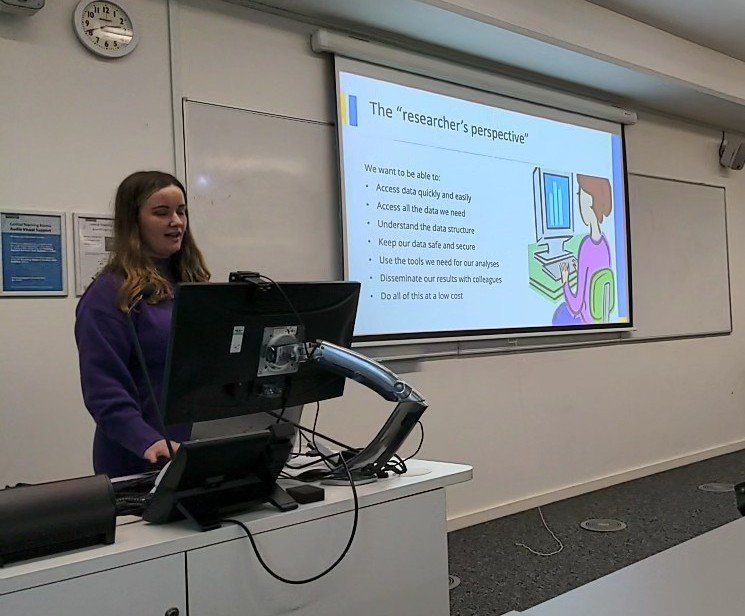What is the UK Biobank?
The UK Biobank is a large-scale biomedical database and research resource, containing in-depth, de-identified genetic and health information from half a million UK participants. The database is regularly augmented with additional data from its participants. Participants aged between 40 and 69 years provide blood, urine, and saliva samples, as well as detailed information about their lifestyle, which is then linked to their health-related records to provide a deeper understanding of how individuals experience disease.
What is the UoM UK Biobank Users Group?
The UoM UK Biobank Users Group is a peer support network for University of Manchester researchers who use or intend to use the UK Biobank database for their research. The group was formed in 2023 and is led by an impressive cohort of researchers. The group leaders are:
- Dr. Charlotte Woolley (Musculoskeletal & Dermatological Sciences)
- Dr. Nils Muhlert (Psychology, Communication, and Human Neuroscience)
- Dr. Robert Maidstone (Immunology, Immunity to Infection and Respiratory Medicine)
The group's mission is to enable the UoM research community to exploit the invaluable information contained within the UK Biobank to promote its evidence-based, impactful research projects. The user group facilitates collaboration, shares best practices, and provides ongoing training and support for researchers. This is the group's second event, and more are being planned.
The group hopes to continue growing and expanding its reach to benefit the research community, so please join us to be a part of this exciting initiative and help shape the future of research.
The Importance of Open, Reproducible Research.
By Prof. Andrew Stewart (Institutional Lead for Open and Reproducible Research; Head of the Department of Computer Science)

Prof. Stewart explained why reproducible research is important; he highlighted high-profile failures to replicate scientific studies across a number of research domains. This culminated in a now-famous paper from John Ioannidis decrying that "most published research findings are false." As a result, major international organisations (such as UNESCO and the G7) recognise that effective policies are needed to improve the reproducibility of research. Furthermore, key funders, such as UK Research and Innovation, now require that funded research incorporate open and reproducible science practices.
Prof. Stewart gave an overview of the plentiful support available within the university from the University's Office of Open Research and from national initiatives such as the UK Reproducibility Network (UKRN). He emphasised the importance of utilising these resources to ensure the credibility of research findings.
The UKRN (of which Manchester is a key node) helps to identify factors that contribute to poor reproducibility and address them. For instance, it has surveyed researchers across the UK to identify open practices and training gaps. Resolving issues may involve increasing computational skills across the research community (PhD students, postdocs, and other academics), promoting transparency in research methodology, and creating reproducible code and data.
A Guide to Using the Research Analysis Platform (RAP) to Analyse the UK Biobank Database.
By Dr. Charlotte Woolley (Research Fellow, Centre for Epidemiology Versus Arthritis)

Dr. Woolley provided a masterclass on how to exploit one of the world's largest bio-medical datasets. She walked through the types of code that can be used to analyse data from the UK Biobank. In particular, giving guidance on accessing and analysing the data using the UK Biobank Research Analysis Platform (RAP).
Researchers can find using RAP difficult, so Charlotte gave a step-by-step introduction to the tool. She emphasised potential pitfalls such as difficulties in installing and loading analysis software, determining when you're likely to overload servers, and the perilous ease of deleting or overwriting your data or files.
Once access to the UK Biobank has been arranged, grants are available to early career researchers for RAP credits, providing the potential for free analysis.
Further Information
The slides from both presentations and a recording of the event are available to the University research community on the UoM UK Biobank Users Group Teams space under the "Files" tab.

